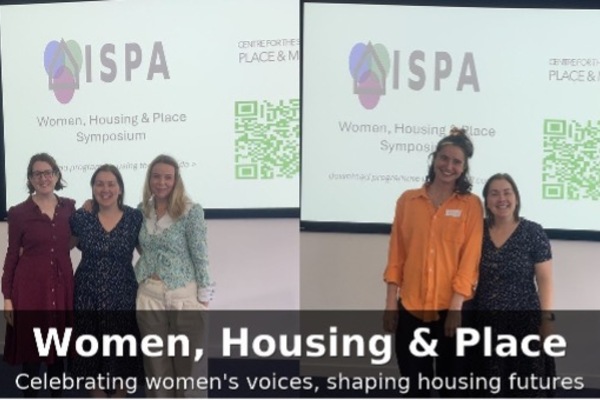In this blog, Dr Yoric Irving-Clarke (Policy and Practice Research Officer, CIH) discusses the recent CIH/University of Essex conference on domestic abuse and housing.
Friday 23rd of March could turn out to be a red letter date in the involvement of housing in responding to domestic abuse. Current CIH President, Alison Inman, gathered key academics and practitioners working in the fields of domestic abuse and housing to share research and inform practice going forwards.
Professor Sylvia Walby (University of Lancaster) opened the day by presenting a fascinating account of the drivers of domestic violence and abuse (DVA), how it is measured, and why this matters. She explained that by counting incidents of DVA, rather than the number of victims (as has been standard in official statistics), it becomes clear that levels of DVA have increased since the Global Financial Crisis. She highlighted women’s socio-economic disadvantage compared to men’s as key to explaining DVA and informing our responses to it. Juxtaposing ‘Hobbesian’ responses that focus on criminalising perpetrators with responses that focus on righting gendered socio-economic inequalities, and favouring the latter perspective, Walby made the case for centrality of housing – as a fundamental resource – in addressing DVA.
The conference also heard from Tamsin Stirling (former Welsh Government advisor) and Bonnie Navarro (Deputy Police and Crime Commissioner for South Wales) on how Wales have led the way in responding to the DVA challenge. They both spoke about the Domestic Abuse and Sexual Violence (Wales) Act 2015 and related legislation around housing, renting, provision of social services and well-being. Navarro also spoke about the negative and long term impacts of abuse on children and young people (continued later by Prof Nicole Westmarland, University of Durham) and how, in Wales, they are using police and crimes data to drive and target their response where it is most needed. Bonnie, Tamsin and Alison (rightly) paid a poignant tribute to the excellent work of the late Carl Sargent AM in Wales on this issue.
The afternoon sessions focused more on practice issues. Prof Aisha Gill spoke on the subject of services for BME women suffering abuse. She stated that the outlook for such services was “beyond depressing” and that womens’ services in general were suffering from a “tsunami of cuts”. Kelly Henderson (Gentoo) and Ruth Weir (University of Essex) spoke about their respective PhD research into housing organisation’s responses to domestic abuse and how mapping data can be used to inform and improve responses to abuse in areas with different characteristics and community assets.
Penny East from SafeLives spoke about how we (and landlords) see and treat women who experience DVA. Drawing on the intensely personal, she spoke about her landlord and letting agent had treated her as a “problem tenant” rather than a victim of abuse. The joint tenancy she had signed was used a method of control by her abuser even after she had left, leading to homelessness and profoundly undermining her well being and ability to ‘move on’.
Guddy Burnett (Domestic Abuse Housing Alliance [DAHA]) spoke about the inception of DAHA and the necessity of a “whole housing” approach to dealing with abuse, including the private rented sector, reciprocal arrangements between social landlords, specialist housing options/refuge services, sanctuary schemes and perpetrator management programmes. Louise Steele (Standing Together) spoke about the Housing First pilot that she is managing and how this creates a solid, secure basis for women to escape abuse and receive specialist support – I’m looking forward to the results of the pilot.
The day closed with reflections from Beth Watts (I-SPHERE and HSA Chair) and me. From a policy and practice perspective, I focused first on how great it was to see so much high quality research being done into domestic abuse and housing, but that this is taking place in criminology departments and at something of a distance from broader housing studies debate – I hope Beth and I left them in no doubt that we’d be delighted to see them at future HSA conferences and publishing in housing journals.
Second, I was struck that domestic abuse has been a personal issue for many of the speakers (myself included). The courage of people sharing their individual stories made the day profoundly inspiring for those lucky enough to be there. Encouragingly, there are a number of steps housing providers can take to support victims of abuse, not least having a specific domestic abuse policy and changing tenancy agreements to make abuse a breach of tenancy.
Beth Watts summed up the day with her view that a “water tight case” had been made for the role of housing in dealing with domestic abuse. She also made the case and a plea for the inter-disciplinary conversation we started here to continue – I’m looking forward to doing so, attending future events on this important area and (most importantly) seeing more practice improvements come on stream as a matter of urgency.






